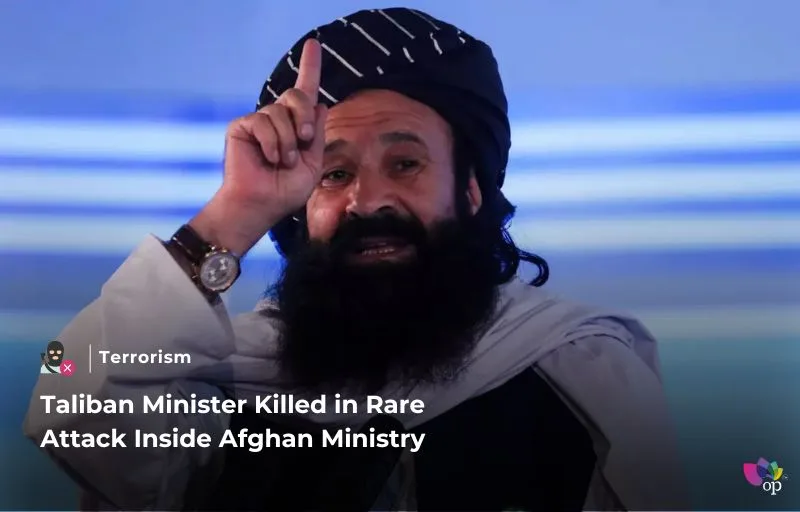According to the reports on Wednesday (11 December), a suicide bombing inside the Ministry of Refugees in Kabul killed Taliban refugee minister Khalil Haqqani and two others. This marks the most significant attack on the Taliban leadership since their return to power in 2021. Khalil Haqqani, a prominent figure in the Taliban and uncle of Sirajuddin Haqqani, was the first Cabinet member killed since the Taliban regained control. No group has claimed responsibility, but the attack raises questions about internal and external threats to the Taliban’s rule.
Haqqani’s death has drawn tributes from Taliban officials and former Afghan President Hamid Karzai, who described him as a dedicated figure in their movement. The Taliban’s chief spokesman, Zabihullah Mujahid, called Haqqani a tireless defender of Islam and acknowledged his death as a significant loss. Analysts like Michael Kugelman suggest the killing undercuts the Taliban’s narrative of restoring peace and stability to Afghanistan.
While the Islamic State group has carried out similar attacks in the past, the timing of this bombing is noteworthy. Days earlier, Sirajuddin Haqqani publicly criticized Taliban leadership for authoritarian decision-making and lack of consensus, leading to speculation about internal discord. However, experts believe the Taliban remains the most unified political force in Afghanistan and will avoid a civil war to maintain power.
The killing highlights ongoing security challenges, even as suicide attacks have declined since the Taliban’s takeover. It also reflects broader tensions within Afghanistan, where peace remains elusive despite Taliban promises. The incident could bolster support for the Haqqani network within the Taliban, further complicating the group’s dynamics amid external pressures and internal rivalries.
References


